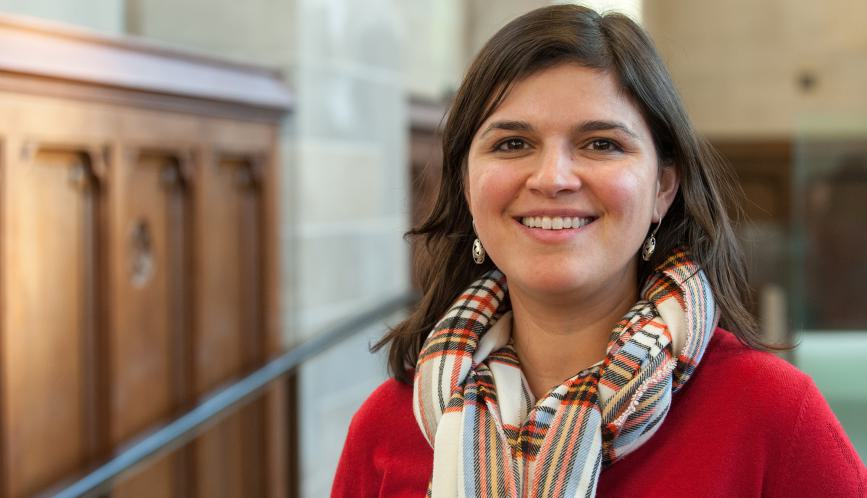Health Inequality network member Marie-Claire Arrieta is an Assistant Professor in the departments of Physiology, Pharmacology and Pediatrics of the University of Calgary, where she also directs the Arrieta Lab. As part of the International Microbiome Center at the Cumming School of Medicine of the University of Calgary, the lab is interested in understanding how humans begin their life in the company of trillions of microbes—our early-life microbiome, and how this microbiome helps define important aspects of immune and metabolic development. Her research interests lie in the role of the intestinal microbiota in the development of immune-mediated and metabolic pediatric diseases. She received her M.Sc. in physiology and cell biology and her Ph.D. in Philosophy at the University of Alberta.
Describe your area of study and how it relates to current policy discussions surrounding inequality.
Our research group studies the gut microbiome early in life and its importance during child development. We are beginning to understand that several immune (asthma, allergies, etc), metabolic (obesity, diabetes, etc), and mental (autism, ADHD, etc) disorders are linked to changes in the types of microbes we harbour in our bodies, especially early in life. We study the crosstalk between microbes and the human immune system to further understand how exposures to specific microbes can increase someone’s risk to develop asthma and allergies. We also evaluate approaches to remediate microbiome alterations during infancy. An important, and often unrecognized aspect of this field of study, is that the microbiome alterations associated with subsequent disease risk differ between human societies. We found this to be the case for asthma, in which the microbiome alterations linked to asthma in Canadian vs. Ecuadorian children differed substantially. These results strongly suggest that global microbial disparities impact disease risk around the world in ways that we are only beginning to understand.
What areas in the study of inequality are most in need of new research?
Microbial exposures differ geographically and between socioeconomic groups in ways that are only partly understood. For example, cesarean delivery rates, formula feeding, infections, and antibiotic usage vary greatly between countries, and within countries. These microbiome-disrupting exposures can disproportionately affect disadvantaged populations. Consequently, unless these differences are taken into account, future microbiome-based therapies aimed at preventing or treating asthma may become limited to more socioeconomically advantaged human societies, worsening the already alarming health disparities in worldwide asthma burden.
What advice do you have for emerging scholars in your field?
To foster collaboration opportunities with researchers from countries with less developed economies, in order to facilitate microbiome studies that improve our understanding of true global human microbiomes and how they impact human diseases around the world.



